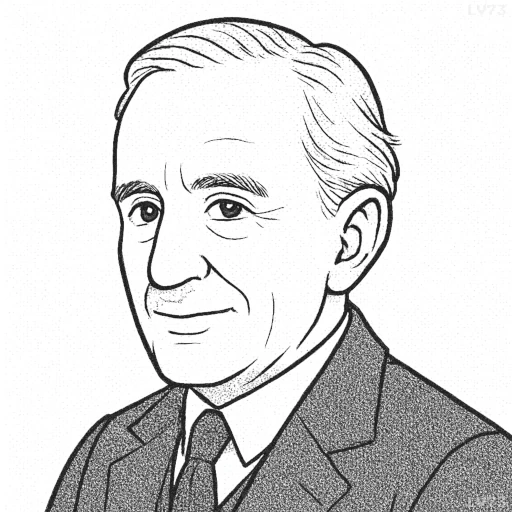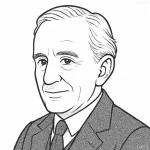“In October 1920 I went to Leeds as Reader in English Language, with a free commission to develop the linguistic side of a large and growing School of English Studies, in which no regular provision had as yet been made for the linguistic specialist.”

- January 3, 1892 – September 2, 1973
- Born in the Orange Free State (British)
- Author, linguist
table of contents
Quote
“In October 1920 I went to Leeds as Reader in English Language, with a free commission to develop the linguistic side of a large and growing School of English Studies, in which no regular provision had as yet been made for the linguistic specialist.”
Explanation
This quote highlights Tolkien’s early career in academia and his role in shaping the field of English language studies. In 1920, Tolkien was appointed as a Reader in English Language at the University of Leeds, a position that allowed him to expand the linguistic curriculum and develop programs for the study of language, especially in areas that were previously overlooked. His task was to introduce a more systematic and scholarly approach to linguistics within a school focused on English studies, an area that, at the time, was still in its formative stages in academic institutions.
Tolkien’s background in philology, the study of historical languages and their development, deeply influenced his approach to both teaching and writing. His academic work, particularly in the field of Anglo-Saxon and Middle English, laid the groundwork for his later success as a writer. The freedom he had at Leeds to develop the linguistic side of the program gave him the opportunity to explore language in a creative and scholarly way, which would later influence the rich, constructed languages of Middle-earth in his fiction. Tolkien believed that language was a key to understanding culture and history, and this belief was central to his work as a scholar and author.
In a modern context, this quote also reflects how interdisciplinary work—combining language, literature, and culture—can shape the future of academic programs and lead to innovations. Tolkien’s pioneering work at Leeds is a reminder of the importance of academic freedom and the ability to shape the direction of study in new and exciting ways. His contribution to linguistics not only impacted academic theory but also set the stage for the more creative exploration of language that would later appear in his novels. For example, his creation of languages like Elvish was rooted in his understanding of linguistic principles, yet it transcended mere academic study to become an integral part of his literary legacy.
Would you like to share your impressions or related stories about this quote in the comments section?



